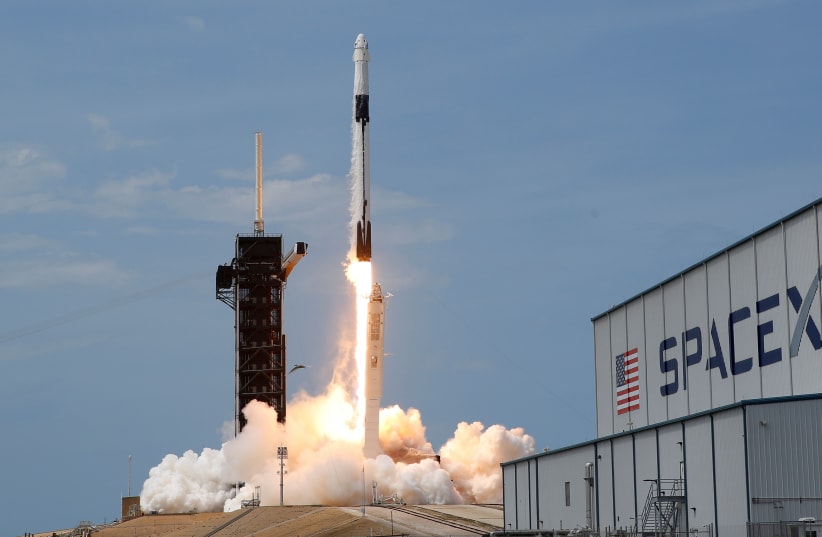A prototype of SpaceX's Starship rocket soared into the south Texas sky in a high-altitude test launch on Wednesday, then flew back to Earth to touch down safely for the first time, after four previous return-landing attempts ended in explosions.
The feat marked a key milestone for the private rocket company of billionaire tech mogul Elon Musk in its development of a reusable heavy-lift launch vehicle to eventually carry astronauts and large cargo payloads to the moon and Mars.
The Starship SN15 blasted off from the SpaceX launch site in Boca Chica, Texas, along the Gulf Coast and reached its planned maximum altitude of 10 kilometers (6 miles), then hovered momentarily in midair before flying nose-down under aerodynamic control back toward Earth.
Maneuvering itself back into vertical position under rocket thrust as it approached the ground, the 16-story, three-engine vehicle than descended to a gentle touchdown on its landing gear.
A live video feed of the landing showed flames continuing to burn at the base of the rocket after the engines cut off, but an automated fire-suppression system trained a steady stream of water onto the landing pad, eventually extinguishing the blaze.
Musk declared success on Twitter, posting a terse message in the understated parlance of spaceflight: "Starship landing nominal!"
Four previous test flights of Starship prototypes - SN8 in December, SN9 in February and SN10 and SN11 in March - all blasted off successfully but blew to pieces either during or just after landing.
The complete Starship rocket, which will stand 394-feet (120 meters) tall when mated with its super-heavy first-stage booster, is SpaceX's next-generation launch vehicle at the center of Musk's ambitions to make human space travel more affordable and routine.
A first orbital Starship flight is planned for year's end. Musk has said he intends to fly Japanese billionaire Yusaku Maezawa around the moon with the Starship in 2023.
